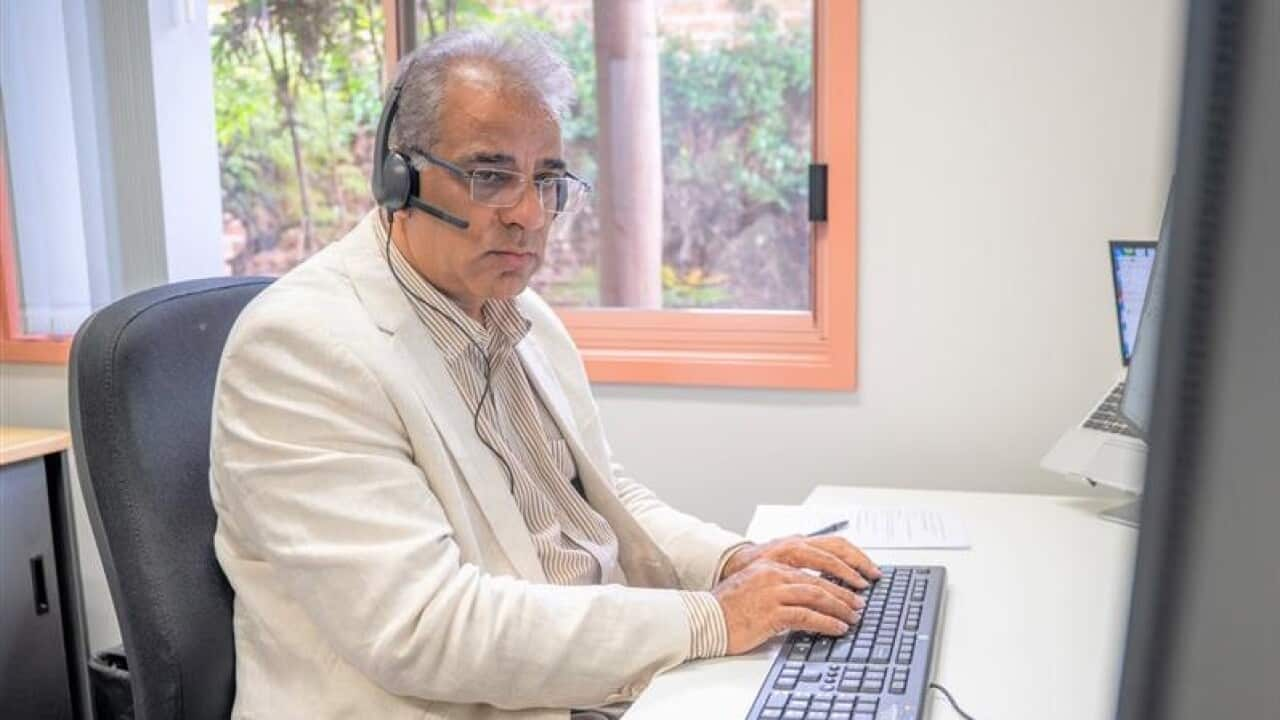AI voices no longer sound like a robot.
We've generated this one ourselves:
"Hello there. My name is Charles. Though to be honest with you, I'm not a real person at all. I'm an artificial intelligence reading from a script. I don't think of myself as artificial however - but I certainly think I'm intelligent."
Charles sounds pretty real. There are breath sounds. He even slurs the word 'but' like a real person.
But he's not.
He's been generated by one of dozens of websites that offer studio quality, professional sounding voices for a pittance - no performance fees, or studio time required.
And that's where it all gets a bit murky.
An individual using an artificially generated voice to impersonate US Secretary of State Marco Rubio contacted three foreign ministers and two US officials last month, pretending to be the top U.S. diplomat.
And anyone can do it. You can upload a recording of a voice to a website, and it will clone that voice so you can make it say anything you like.
Sure, there are warnings as you upload the recording, asking if you have the rights to do it.
But there's nothing to stop you.
In this case, the person contacted the ministers, a U-S governor and a member of Congress via the Signal messaging app and left voicemails for at least two of them, pretending to be Mr Rubio.
Tammy Bruce is the State Department's spokeswoman:
She started her press briefing on a humorous note:
"A couple of announcements here as we begin. In my own voice. Not AI"
But she went on to say the department was taking this prank - if prank it was - extremely seriously.
"The State Department, of course, is aware of this incident and is currently monitoring and addressing the matter. The Department takes seriously its responsibility to safeguard its information and continuously takes steps to improve the Department's cybersecurity posture to prevent future incidents."
Ms Bruce is coy about what was actually said in the messages, citing security concerns.
The trouble is - it's almost ridiculously easy to clone the voice of a public figure like Marco Rubio.
Sinead Lovell is a Futurist and founder of Waye Talks, an organisation that aims to help businesses prepare for the future of work with the kind of technological advances we're seeing every day.
She told NBC that it takes only three seconds of audio for an artificial intelligence to generate an authentic sounding voice.
"Marco Rubio, he has a huge public profile and there's video footage interviews of him going back years now. So an AI trained on all of that data could easily generate a voice that is absolutely indistinguishable from Marco Rubio himself."
And while the idea of using the actual voices of important people to fool officials may seem like fun, this is the tip of a dangerous iceberg.
Imran Ahmed is the CEO of he Centre for Countering Digital Hate.
He points out that artificial intelligence is not only being used to generate fake voices.
It's also being used to generate fake pictures and videos that make it look like world leaders are doing something they shouldn't.
He told CBS it's all over social media - and he believes there are some powerful people behind it.
"They're engineered to erode trust in institutions, in elections, in truth itself, precisely the goal of Xi Jinping, Vladimir Putin, the Ayatollah Khameini... Hostile states."
Ms Lovell has this warning for us all.
"We are past the point where the average eye or ear could distinguish between what's human generated and what's not, and the safest assumption is if you can't fully verify whether something is AI generated or not, you assume that it is until you can get that verification."













